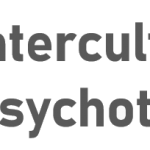OUR THERAPIES
- Home
- Therapies

The Neurosequential Model of Therapeutics (NMT)
Intercultural Psychotherapy operates under the Neurosequential Model of Therapeutics (NMT). NMT is a developmentally sensitive, neurobiology-informed approach to clinical problem solving developed by the Child Trauma Academy in the USA. NMT is not a specific therapeutic technique or intervention. It is an approach that integrates core principles of neurodevelopment and traumatology to inform work with children, families, and the communities in which they live.

Intercultural Psychotherapy
Intercultural Psychotherapy operates under the Intercultural Psychotherapy approach, which is approved by the Danish Psychotherapist Association and evaluated according to the guidelines of the Danish Ministry of Education, Social Affairs and Health. Awareness of our client's values and beliefs into the counseling process is our mission. We consider Cultural belief systems like spirituality, religion and family-centric issues may in themselves serve as therapeutic vehicles to promote healing for our clients

Theraplay Therapy
Intercultural Psychotherapy uses Play Therapy in sessions with children. Play Therapy is a structured approach for children and their parents. Its goal is to enhance attachment, self-esteem, trust in others and joyful engagement. Children come to me for various behavior and interpersonal problems resulting from learning disabilities, developmental delays, and pervasive developmental disorders. Because of its focus on attachment and relationship development,

Narrative Therapy
Intercultural Psychotherapy operates under the Narrative Therapy approach, which assumes we are all experts in our own lives, and that fundamentally, stories are the primary way we make sense of things. That being said, Wallis et al. (2011) found that narrative therapists tend to agree on some core features of the approach: Social-cultural and political contexts are important to understand the ‘problem.’ Narratives are socially constructed. They are not objective, but shaped through our social interactions

Mindfulness Therapy
How can we have more control over our thoughts in this time of information overload and anxiety? Exercising mindfulness can help discipline our minds in order to handle the current situation and focus on our connection and presence. Modern life involves a daily bustle of noise, distraction, and information overload. Our senses are constantly stimulated from every direction to the point that a simple moment of quiet stillness seems impossible for some of us. This continuous agitation hinders us from getting the most out of each moment, subtracting from the quality of our life

